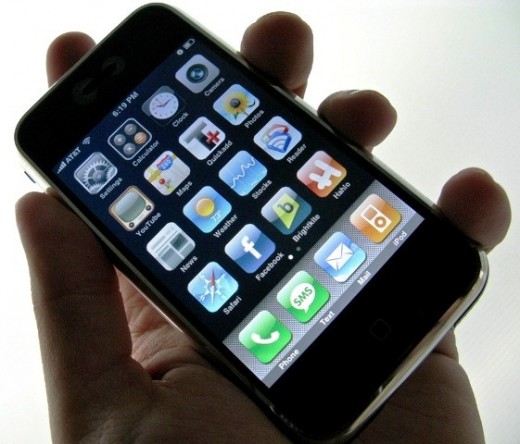Wow… I’ve been an iPhone user since the day it was launched! I remember paying over $500 for my 1st generation and then ditching it soon after for an iPhone 3G.
I’ve personally decided to wait on the 4, but whether you have the antique first version, the 3G, the 3Gs or the 4 there are some things you should know about why law enforcement agencies are thrilled at Apple’s innovative cell phone technology.
In addition to most cellphones being the center of a “techies” universe, the iPhone is particularly impressive with cops because evidence on the phone is NEVER deleted!
According to an article in the SunTimes, the sophisticated cell phone and mobile computer is becoming as popular with police as it is with consumers because it can provide investigators with so much information that can help in solving crimes.
“When someone tells me they have an iPhone in a case, I say, ‘Yeah!’ I can do tons with an iPhone,” exclaimed one detective, who works in a sheriff’s department high-tech crimes unit.
The devices can help police learn where you’ve been, what you were doing there and whether you’ve got something to hide. And while some phone users routinely delete information from their devices, that step is seldom as final as it seems.
“When you hit the delete button, it’s never really deleted,” explains the detective.
And if you’re doing something criminal, something about your crime is probably going to go through that phone:
??Every time an iPhone user closes out of the built-in mapping application, the phone snaps a screenshot and stores it. Savvy law-enforcement agents armed with search warrants can use those snapshots to see if a suspect is lying about whereabouts during a crime.
??iPhone photos are embedded with GEO tags and identifying information, meaning that photos posted online might not only include GPS coordinates of where the picture was taken, but also the serial number of the phone that took it.
But wait… there’s more!
??Even more information is stored by the applications themselves, including the user’s browser history. That data is meant in part to direct custom-tailored advertisements to the user, but experts said some of it could be useful to police.
Clearing out user histories isn’t enough to clean the device of that data, said John B. Minor, a member of the International Society of Forensic Computer Examiners.
Just as users can take and store a picture of their iPhone’s screen, the phone itself automatically shoots and stores hundreds of such images as people close out one application to use another.
“Those screen snapshots can contain images of e-mails or proof of activities that might be inculpatory or exculpatory,” Minor said.
And last but not least, the keyboard pretty much logs EVERYTHING you’ve ever typed on your phone and the right hacker can identify all of your passwords and more!
??The keyboard cache logs everything that you type in to learn autocorrect so that it can correct a user’s typing mistakes. Apple doesn’t store that cache very securely, Zdziarski contended, so someone with know-how could recover months of typing in the order in which it was typed, even if the e-mail or text it was part of has long since been deleted.
Some if this may seem a bit scary to you iPhone users, but don’t fret. While you’re in possession of one the most innovate cell phones in history, other phones are still trying to catch up.
Pretty soon all mobile phones will have the exact same capabilities. But for right now… it’s just you.? So enjoy it while you can and if you plan on conducting illegal activities, don’t own an iPhone!
![Straight From The A [SFTA] – Atlanta Entertainment Industry Gossip & News - Atlanta's Most Reliable Source of Entertainment Gossip!](https://straightfromthea.com/wp-content/uploads/2015/04/sftalogo31.png)










![Wanna Find Out If Your Lover Is Cheating? There’s an App For That… [VIDEO]](https://straightfromthea.com/wp-content/uploads/2011/10/tumblr_lt58ukjbeM1qfq3x1o1_500-150x150.png)
![FAIL! Porsha Stewart’s African Boyfriend Has A Girlfriend [PHOTOS] + Porsha Admits It Was All A Stunt… *STATEMENT*](https://straightfromthea.com/wp-content/uploads/2014/03/Tamala-Jones-StraightFromTheA-2014-150x150.jpeg)



